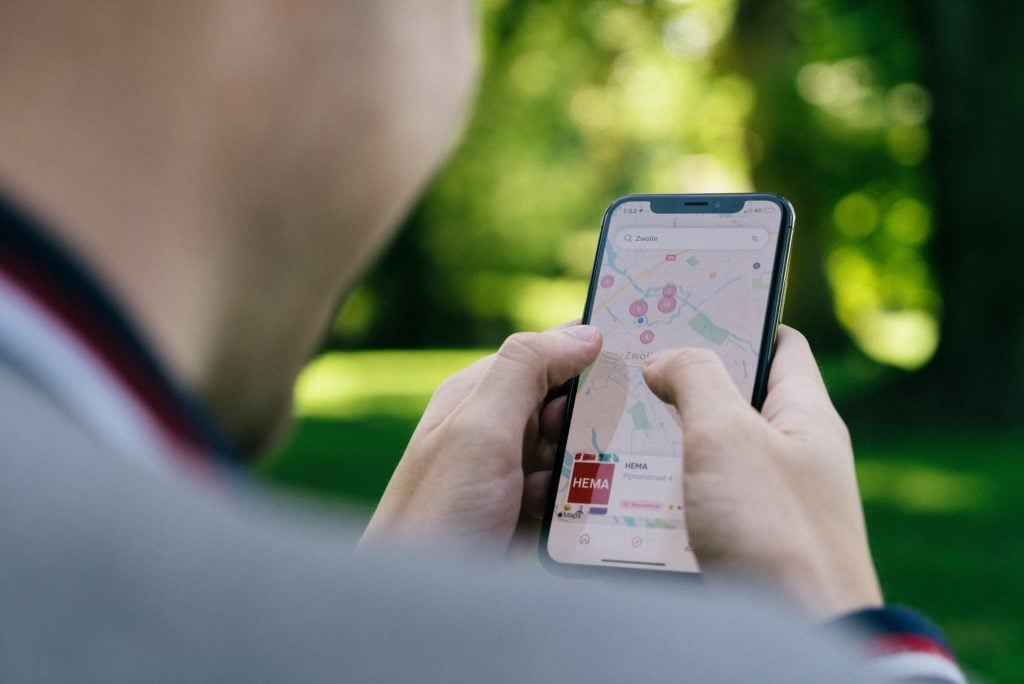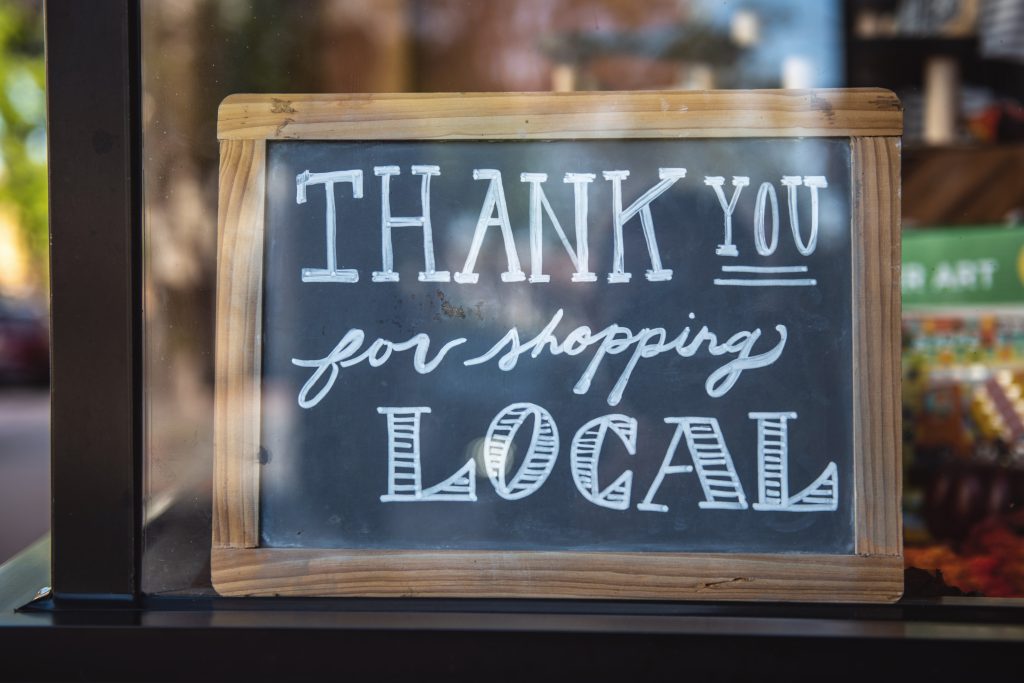Are you looking for ways to optimize your small business website for local search? Is it hard to keep up with all of the different local SEO best practices?
Don’t worry, we’re here to help. Our team of experts has been studying and researching Local SEO techniques for years, and we know exactly what it takes to get your business noticed by potential customers in your area.
In this article, we’ll provide an overview of the key strategies and local SEO tips you need to employ to ensure that when someone searches online with keywords relevant to your industry and location, they find YOU!
We’ll discuss topics such as:
- Leveraging geo-targeted keywords in content marketing campaigns
- Optimizing your listing on Google My Business
- Building local citations
- Increasing customer reviews so you stand out from the competition
Whether you’re new to local SEO or have experience but want some expert local SEO tips—let’s get started!
12+ Local SEO Best Practices

Conduct Keyword Research to Target Local Traffic
If you’re running a business website or blog, you’re likely interested in getting more traffic. But what if you could target that traffic to your local area?
Conducting keyword research is crucial for any SEO strategy, but when it comes to targeting local traffic, it’s even more critical.
You want to identify the specific keywords and phrases people in your area are searching for. This could include things like:
- “best coffee shops in [your city]”
- “local farmers markets”
- “affordable car repair near me”
By optimizing your content with these keywords and phrases, you increase the chances of your website showing up in search results when someone searches for them.
Perform keyword research and incorporate targeted local terms into your content to drive more relevant traffic to your website and ultimately improve conversions and sales within your community!
Here are a handful of local SEO tools you can use for local keyword research:
Use these tools to find locally relevant keywords your potential customers search to find businesses like yours. Track these target keywords, and make them a focus on your website, directory listings, and Google Business Profile.
Optimize Your On-Page Content for Local SEO
When it comes to local SEO, optimizing your on-page content is crucial for improving your website’s visibility in local search results. Local SEO focuses on targeting specific geographical areas to attract relevant local customers.
To ensure your on-page content is optimized for local SEO, several key aspects must be considered.
Include location-based keywords
Make sure to include your location-based keywords strategically throughout your content. This includes incorporating them naturally in your headings, subheadings, and body text. For instance, if you run a bakery in Seattle, include phrases like “Seattle bakery” or “best bakery in Seattle” in your content.
However, be careful not to overstuff keywords, as it can negatively impact readability and user experience.
Created localized landing pages
Create localized landing pages for different locations you serve. If your business operates in multiple cities or regions, dedicating unique landing pages for each area is essential.
These pages should contain location-specific information, such as addresses, contact details, and testimonials from customers in that particular area. By tailoring your content to specific locations, you increase your chances of appearing in local search results for those areas.
By following these strategies and optimizing your on-page content for local SEO, you can enhance your website’s visibility in local searches and attract more customers from your target areas.
Consistency is key, so regularly monitor and update your content to reflect any changes in your business or location information.
Build a Google Business Profile and Optimize it

If you’re a local business, having a Google Business Profile (formerly Google My Business) is absolutely essential. This free tool allows you to manage your online presence across Google Search and Maps, making it easier for potential customers to find you.
But just having a Google Business Profile isn’t enough – if you want to get the most out of this platform, it’s important to optimize it properly.
Accuracy
First off, make sure all of your information is accurate and up-to-date. This includes your address, phone number, website URL, hours of operation, and any other relevant details about your business.
Not only will this help customers find you more easily, but it can also boost your rankings in search results.
Photos
Next up: photos! Adding high-quality images of your business can make a huge difference in how often people click on your listing or engage with it in other ways.
Choose photos that accurately represent what you do (e.g., product shots or interior/exterior views), and don’t be afraid to showcase some personality!
Engagement
Finally, take advantage of the various features that Google Business Profile offers:
- Posts (which allow you to share updates or promotions)
- Reviews (which can help build trust with potential customers)
- Messaging (which lets people connect with you directly from the search results page).
By using these tools strategically and consistently, you’ll be well on your way to maximizing the benefits of Google Business Profile!
Create High-Quality Content with Geo-Targeted Keywords

When it comes to creating content for your website, quality should always be a top priority. But did you know that incorporating geo-targeted keywords into your content could improve your search engine rankings and drive more traffic to your site?
Geo-targeting allows you to focus on specific regions or locations where potential customers may search for products or services like yours.
Identify keywords relevant to your business and location to create high-quality, geo-targeted content. Use tools like Google’s Keyword Planner to research popular phrases and terms people in your area are searching for.
Once you have a list of targeted keywords, incorporate them naturally into your content. This means avoiding keyword stuffing – instead, use variations of the phrase throughout the text.
In addition to using targeted keywords in your text, consider including geographic markers in other parts of your website as well.
For example, include contact information with your local address and phone numbers so search engines can verify that you are located in the area you claim to serve.
You can also create separate landing pages or blog posts focused specifically on topics related to the region where you do business.
Creating high-quality content with geo-targeted keywords can increase your business’s visibility for potential customers searching specifically within your local area. This can help improve overall website traffic and lead generation – which translates into increased revenue opportunities!
Use Online Directories and Citations for Local Visibility
Are you a local business struggling to get noticed? Are you tired of being outshined by bigger corporations with more resources? Fear not, my friend!
There are plenty of ways for smaller businesses to gain visibility in their community. One effective strategy is utilizing online directories and local business listings.
Online directories are websites that compile lists of businesses based on location or industry. By listing your business on these directories, you increase the chances of potential customers finding your website when they search for products or services related to your business.
It’s usually free to join a business listing—so you have nothing to lose.
Additionally, many online business directories allow customers to leave reviews, which can provide crucial social proof that convinces other potential customers to choose your business over competitors.
Citations refer to mentions of your business’s name, address, and phone number (NAP) across the web. Having consistent and accurate NAP information across various websites signals trustworthiness and authority to search engines like Google.
This leads to higher rankings in local search results.
To maximize the benefits of online directories and citations, ensuring that all information about your business is accurate and up-to-date is essential.
Consistency is key – make sure that every mention of your NAP information matches exactly across all listings.
While local visibility can be challenging for small businesses competing against larger corporations with more resources, utilizing online directories and citations can level the playing field.
By ensuring consistency in NAP information across various listings and encouraging customer reviews on directory sites, your business can increase its chances of being found by potential customers.
Encourage Customer Reviews through Review Platforms
As a local business owner, it’s essential to recognize the value of customer reviews. Not only do they provide valuable feedback to help improve your products or services, but they also serve as social proof for potential customers.
The more positive reviews you have, the more likely someone is to trust and choose your business over others.
One way to encourage customer reviews is through review platforms such as Yelp, Google My Business, and Tripadvisor. These websites allow customers to leave public feedback about their experience with your business.
By claiming and optimizing your profiles on these platforms, you can make it easier for customers to leave reviews and increase the visibility of those reviews in search results.
To maximize the benefits of review platforms, be sure to respond promptly and professionally to all feedback – both positive and negative. This shows that you care about customer satisfaction and are committed to addressing any issues that arise.
Additionally, consider offering incentives such as discounts or freebies for leaving a review – just be sure not to violate any platform guidelines in doing so.
Utilizing review platforms is an excellent strategy for encouraging customer feedback and promoting social proof online. By taking advantage of these tools effectively, you can improve your reputation online while providing valuable insights into how you can improve your business operations moving forward.
Get Listed in Niche-Specific Directories
Getting your website listed in niche-specific directories is a powerful way to improve your online presence. These directories are specialized databases of websites that cater to specific industries or topics.
By listing your website on them, you get valuable exposure to potential customers within your industry and backlinks, which are critical for improving search engine rankings.
Finding the correct directory for your business type and niche market is vital. To do this, start by researching all possible directories related to your industry and check their domain authority before submitting your website link.
You want high-quality links from reputable sites, so avoid spammy or low-quality directories.
A well-designed directory profile can significantly boost traffic and increase brand awareness by providing detailed information about what differentiates you from competitors.
Use descriptive language when writing profiles and include targeted keywords in the title and description sections.
Securing a spot in a niche-specific directory can be a game-changer for businesses eager to carve out a name for themselves in their respective sectors.
It’s not just about recognition; it’s also a strategic move for building a robust online presence with high-quality backlinks. They’re like the digital stamps of approval that add to your online credibility. But wait, there’s a word of caution here – not all directories are created equal.
To ensure your SEO efforts don’t take a hit, be selective about where you plant your flag. Only go for those directories that have a solid reputation. Remember, in the world of SEO, it’s all about quality over quantity.
Consider Hosting Events or Participating in Community Outreach Programs

Imagine the power of being part of the local scene and making a positive impact. When businesses dive into hosting local events or actively participating in community programs, they do more than create a buzz or network.
They’re strategically boosting their local SEO relevance, which is a powerful tool in the digital world.
These initiatives are more than just events, whether a fundraising gala, a town carnival, or a professional meet-and-greet. They’re opportunities to create lasting impressions, stamp your brand’s footprint in the local community, and simultaneously enhance your online visibility.
Getting the local press involved is a masterstroke. It’s a win-win situation where you get broader event coverage and those crucial backlinks, which work behind the scenes to propel your search engine rankings.
Social media platforms also play a vital role. They’re the ideal stage to keep your audience engaged, share real-time updates, and keep the momentum going for your event. Facebook, Twitter, and Instagram – they’re all part of your promotional arsenal, ensuring your event is the talk of the town.
Participation in community outreach takes this local relevance even further. By aligning with causes that mirror your brand’s ethos, you showcase your commitment to issues that matter.
This socially responsible image builds trust with consumers, who are paying more and more attention to how businesses behave beyond profits
Engaging in local events and community programs is a strategic move that serves many purposes. It helps your business connect with potential customers and establish a loyal fan base, and amplifies your online presence with locally relevant links and mentions.
Implement Schema Markup on Your Website
If you want to improve your website’s search engine ranking, implementing schema markup is definitely something you should consider.
Schema markup is a type of code added to your website that helps search engines understand the content on each page. This helps search engines provide more informative and relevant results for users.
One way schema markup can be used is by adding rich snippets to your website’s content. Rich snippets provide additional information about the content on a particular page in Google’s search results.
This can include things like reviews, prices, and events. By using schema markup to add this extra information, you can make your website stand out in the search results.
Another way schema markup can benefit your website is by improving local SEO efforts. Adding location-specific data like addresses, business hours, and contact information with schema markup makes it easier for Google to display accurate information in local searches.
Implementing schema markup on your website may seem like a small detail, but it significantly benefits SEO efforts. By adding structured data through schema markup, you are helping Google better understand what your pages are about, which leads to higher visibility in relevant searches and increased traffic to your site.
Audit Your Website and Google Business Profile

Regularly conduct a local SEO audit to see how you’re performing. You might find your ranking for new local keywords or discover information isn’t showing up accurately on Google Maps—you won’t know unless you check.
Set time aside at the end of every month to do a basic audit. This could include looking at your local ranking or seeing how your website appears on mobile devices.
Watch for trends.
Did traffic spike on a specific week? Did your local search ranking drop one month? Try to find out the cause of these changes. You might find a way to scale your successes and avoid future missteps.
Optimize for Voice Search
More of your customers are using voice search to find local businesses in their community. However, your site and information need to be written in a way that AI assistants like Alexa and Siri can read and relay that information to shoppers.
Often, this involves simplifying content and providing quick answers next to subheaders. That’s a gross oversimplification, but SEO experts understand how to write for search and get assistants to find that information.
Don’t skip over voice search, though. Here are a few stats to keep in mind:
- More than 50% of adults say they use voice search daily
- More than 20% of searches in the Google App are performed with voice search
- 58% of consumers use voice search to find local businesses
- 27% of consumers use voice search on mobile devices
Take Your Local Search Game to the Top With BCC Interactive
Mastering local SEO is a powerful tool for businesses looking to dominate their local market. By implementing the best practices outlined in this article, you can position your business as a local authority, attract targeted traffic, and ultimately drive more customers through your doors.
However, optimizing for local SEO can be a complex and time-consuming process. And the best practices are just the beginning—you need a holistic local SEO strategy to boost your local rankings.
That’s where BCC Interactive comes in.
Our team of experienced SEO experts understands the nuances of local search and can help you navigate the ever-changing landscape to ensure your business stands out from the competition.
If you’re ready to take your local SEO performance to the next level and achieve sustainable growth, we invite you to book a call with us.
During our consultation, we’ll thoroughly analyze your current SEO strategy, identify areas for improvement, and tailor a customized plan that aligns with your business goals. With our expertise and dedication to delivering results, we’ll work hand in hand to optimize your online presence, drive more local traffic, and maximize your revenue potential.

